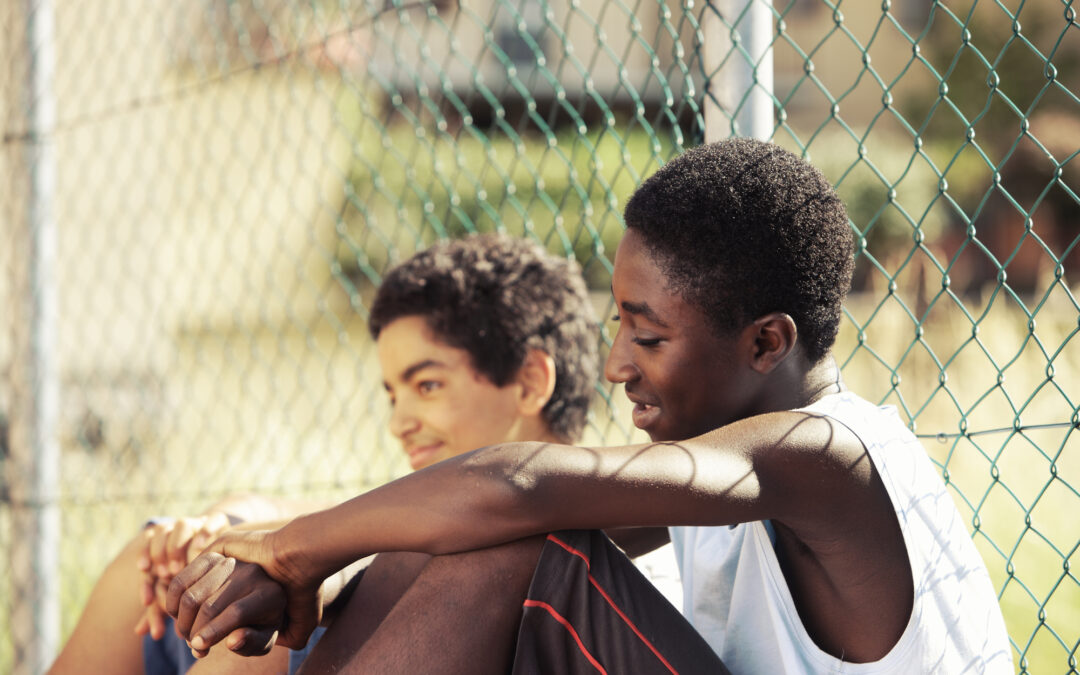Lessons on Learning, Feeling, and Acting
This weekend I had the opportunity to zoom with my mentoring group of all black boys. Although we were supposed to discuss a book we’ve been reading, I knew it was going to be a conversation about the recent events around race relations in our country. The boys needed the space. And, quite frankly, so did I.
I haven’t been able to put together the words to explain the complexity of chaos that exists in the country right now. We’re in the midst of multiple crises and the United States has so many bad habits, coupled with poor leadership, I know it is not prepared to learn any lessons. I’m a man. I’ve seen this before. I have calluses that shield some of the pain of these fresh wounds. But, if I am at a loss for words, how must these black boys feel and be processing the confusion in their soul? We talked and a space was created for them to just be boys who are trying to understand.
Although they didn’t use these words, they shared the bias of being a black “male” in America. They expressed that they felt like people don’t know or have chosen not to learn about bias and the history of multiple occurrences in which their likeness have dealt with violence from those who are supposed to protect and serve. I explained how being a black male often means to be without humanity, without history, without hope. Black “males” are not children, boys, teens, or men, rather a figure to be feared, contained, or eliminated.
We talked about the disproportionality in the events of police violence against black males and how that often corresponds to the disproportionality in our schools regarding achievement and disciplinary infractions. I saw the moment to teach them that they must continually strive towards building their own identity as black men while simultaneously pushing back on those who desire to limit them to a box. They, and their mothers and families, fear this box where their body can be left killed and discarded on the street by the state. A box where the recording and viewing public can watch this demise over and over with many justifying this loss of “American” life. They understood the lesson, but wondered aloud when teachers and other authority figures would hear the lesson.
Not only the historical bias, and lack of awareness, around it, but we talked about our feelings that are attached to these situations. What I mean by that is the trauma that occurs from seeing this type of state violence taking place on national television. We discussed the irony and anger (and again, disproportionality) of never having seen a white person killed on TV and it being shown on repeat. Channeling every counseling skill and trauma informed practice I know, I told them that their mind is still developing and it is not designed to handle the trauma of the violence that is seen in the media. As a young man, your pre-frontal cortex is not fully developed and the cumulative trauma around your existence further compromises it. I knew we needed to continue talking, breathing, praying and reflecting together.
We also recognized the response that occurred as a result of the lawlessness. The crazy feeling of not wanting to see destruction but understanding the destruction. One young man asked “how many times can you shake a soda can and not expect it to burst? I reminded them this country was founded on violence and Minneapolis had a number of high-profile cases that simmered under the radar that sparked the first match. We spoke about Philando Castile, a legally registered gun owner, who was killed in the front seat of his car on Facebook Live in front of his girlfriend and a young child. I don’t have to tell you that the officer was acquitted. To us, it was a person, Philando Castille. To the state, it was just a black male. They pondered why is there such an empathy deficit around their humanity. With little constructive outlets for processing this, how you do I tell them to resist responding to lawlessness without becoming lawless? The anger and frustration can be channeled constructively, or it wont. We discussed this complexity. I’m so glad my boys had this space.
Lastly we talked about what is the solution? How do you act on this information and feelings? Why is it that this happens regularly and is being caught on camera? Again, this ain’t new. My calloused wounds go back to Rodney King, or the story of Emmitt Till and countless others where there was no camera available to capture the brutality of systematic racism. Although the boys expressed a determination to create new narratives for themselves that change this paradigm, I assured them that this will happen again. I want their skin to be hardened because I know there is more trauma to come. As a man, this is what I had to do.
More importantly, I shared that there are benefits and consequences to racism and it’s not our job to fix it individually. I stated that although their individual narratives will provide glimmers of hope, to disrupt a powerful system you will need allies and advocates to push back with you. In fact, allies and advocates, need to be more than that; they need to be anti-racist. There is no time for the personalized language of “I’m not a racist” when confronting a systemic issue. There is no non-racist category for you. You either support the system of racism or you are working to dismantle it. I closed by saying that this is not a fight against black and white but of ANTI-racist versus racism.
In closing, they asked was I okay. I appreciate them checking in on me and the empathy displayed for me as a grown man. I’m glad we have each other’s backs. The check-in was vital for me because as an academic I was unable to put my layered abstract thinking (and feelings) around the complicated societal, political, and historical understandings of America into words. I needed to hear from the minds and hearts of the young man I cherish most. They are learning, feeling, and acting, and said that all of society needs to learn, feel, and act alongside them. My boys expressed commitment to fighting this deadly virus of racism and destroying it. Their question is, are you?


Recent Comments